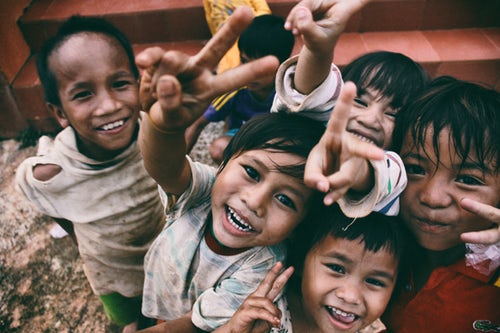
Teaching children the joys of giving is one of our most important lessons parents can impart on their children. There is nothing the world needs more today than a future generation that’s more kind, more generous, and more compassionate. As parents, that is not an easy task. But teaching kids to be charitable and generous will be a rewarding experience for the entire family.
Introducing charity
It’s never too early to teach children about charity. The founder of CCARE states that as early as 14 to 18 months a child has the instinct to help without reward. He notes that as we get older we lose this natural instinct to automatically help others. This is why parents must be proactive in encouraging and teaching their children to not lose sight of this quality. Children should learn to give at a very young age and this should enable them to appreciate the things that they have, specially if they are very fortunate to not experience going home with an empty fridge.
Developing empathy.
At around the age of 3, children become aware of other peoples’ feelings, thoughts, and emotions. This is the best time to hone a child’s empathy because this is the time they become conscious of the fact that actions have consequences. While empathy is intrinsic to all of us, it still needs to be nurtured.
Instilling gratitude.
In exposing your children to the experiences and the challenges others are facing, they learn to be more thankful for what they have. In sharing, they understand that there is always someone less privileged than them, and that’s something your child can benefit from in their later years.
Teaching passion.
Letting your child choose a charity on their own can steer them to discover what area of charity they are passionate about. Whether it's for animals, the environment, or a civic cause, passion kindles growth in a child.
Where to start?
Be a role model.
Compassion is first taught at home. Children learn from you as their first role model, so seeing you show compassion to others or donating to charity can imbue these virtues early on.
Do it as a family.
Learn about a charity together. Plan it as a family and integrate it to your lifestyle. It can be anything from making a donation box at home or volunteering at a local event. You could even combine charity with a family vacation, especially if you’re visiting a place like an animal sanctuary in Africa. Incorporating charity into your life is the most powerful teaching tool for compassion.
Make it accessible.
Charity comes in different shapes and sizes. You can do volunteer work in a nursing home or spend a few hours in a public soup kitchen. You can also encourage your children to set aside a part of their allowance to donate to their chosen charity. The growing support for charity in the last few decades has been indicative of successive generations experiencing an increasingly more compassionate upbringing. Last year, The Conversation reported that Americans donated $410 billion to charitable institutions. Remarkably, the largest source didn’t come from foundations but from individuals donating. A recent report by international charity organization Save the Children reveals that 280 million children now have a much better chance of growing up safe, healthy, and educated compared to any other time in the past 20 years. In short, while there is still a lot of work to be done, the world has made remarkable progress in terms of protecting children – thanks to the charitable efforts made by millions of people across the world and some invaluable institutions. Raising a worldly and compassionate child will not only instill in them good values, but also help to make the world a better place.



























